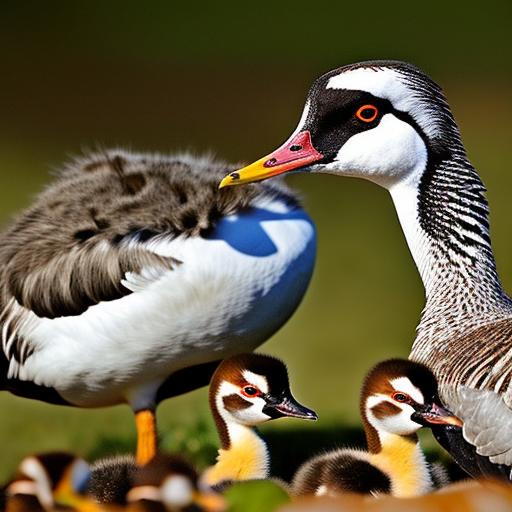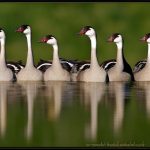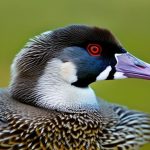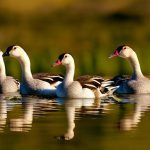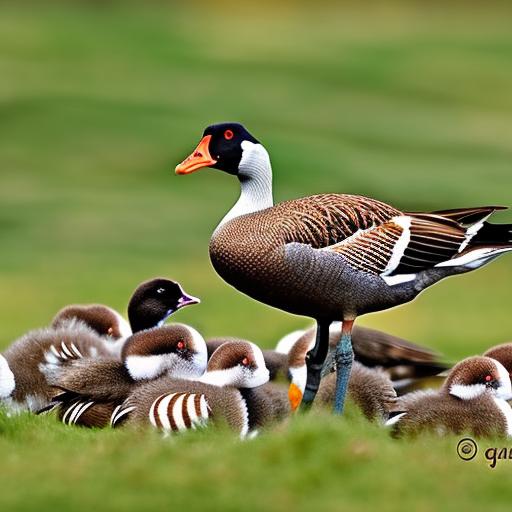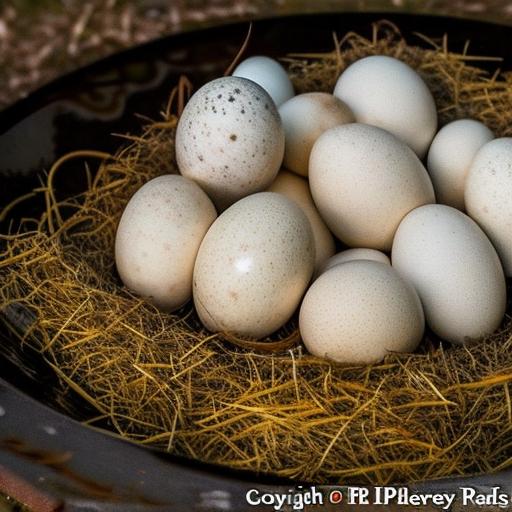African geese, also known as Egyptian geese, are a species of waterfowl native to Africa. They are known for their striking appearance, with a combination of brown, black, and white feathers. The breeding season for African geese is an important time for both conservation efforts and farming practices. Understanding the breeding season is crucial for successful breeding and ensuring the continued success of African geese populations.
Key Takeaways
- African geese breeding season is crucial for conservation and farming purposes.
- Factors affecting African geese breeding season include temperature, daylight hours, and nutrition.
- African geese mating behavior during breeding season involves courtship displays and vocalizations.
- Nesting habits of African geese during breeding season include selecting a safe and secluded location and building a nest from grass and feathers.
- Incubation period of African geese eggs is around 28-34 days, and hatching and care of chicks require warmth, protection, and proper nutrition.
Factors Affecting African Geese Breeding Season
Several factors can affect the breeding season of African geese. Environmental factors such as temperature and daylight hours play a significant role in determining when geese will breed. Geese typically breed during the spring and summer months when temperatures are warmer and daylight hours are longer. These conditions provide a more favorable environment for successful breeding and the rearing of offspring.
Social factors also play a role in the breeding season of African geese. Geese have a hierarchical social structure, with dominant pairs having priority in choosing mates and nesting sites. This hierarchy can influence the timing of breeding and the selection of mates. Additionally, health factors such as nutrition and disease can impact the breeding season. Geese require a balanced diet to ensure optimal health and reproductive success. Poor nutrition can lead to reduced fertility and lower hatch rates.
African Geese Mating Behavior During Breeding Season
During the breeding season, African geese engage in elaborate mating rituals. The male goose will perform a display to attract a female mate, which includes stretching his neck, flapping his wings, and honking loudly. The female will respond by bobbing her head and making soft calls. Once a pair has formed, they will engage in courtship behaviors such as preening each other’s feathers and swimming together.
Proper mate selection is crucial for successful breeding. Geese typically form monogamous pairs that will stay together for life. It is important to choose a mate that is healthy and genetically compatible to ensure the production of healthy offspring. Mating with a genetically diverse partner can also help increase the overall genetic diversity of the population, which is important for the long-term survival of the species.
Nesting Habits of African Geese During Breeding Season
African geese have specific nesting habits and preferences during the breeding season. They prefer to nest near water, such as lakes, ponds, or rivers, where they can easily access food and escape from predators. Geese will build their nests on the ground, typically in a concealed location such as tall grass or under bushes. The female goose will line the nest with feathers and down to provide insulation and protection for the eggs.
Providing proper nesting materials and locations is essential for successful breeding. Farmers and conservationists can create artificial nesting sites by placing nesting boxes or platforms near water sources. These structures should be elevated to protect the eggs from flooding and predators. Additionally, providing nesting materials such as feathers and down can help attract geese to these artificial nesting sites.
Incubation Period of African Geese Eggs
The incubation period for African geese eggs is approximately 28-30 days. During this time, the female goose will remain on the nest to keep the eggs warm and ensure proper development. The eggs must be kept at a consistent temperature and humidity level for successful hatching. Factors such as temperature fluctuations or excessive humidity can negatively impact the development of the embryos.
Proper incubation conditions are crucial for successful hatching. Farmers and conservationists can use artificial incubators to control temperature and humidity levels more precisely. It is important to regularly monitor these conditions and make adjustments as needed to ensure optimal development of the embryos.
Hatching and Care of African Geese Chicks
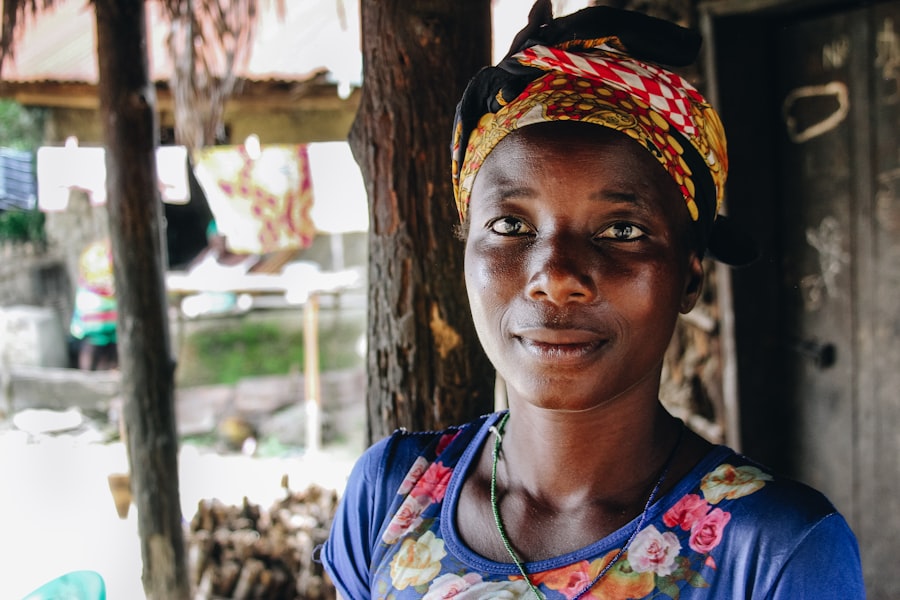
Once the eggs have hatched, it is essential to provide proper care for the newborn chicks. The chicks are precocial, meaning they are capable of walking and feeding themselves shortly after hatching. However, they still require protection and guidance from their parents.
Proper nutrition is crucial for the healthy growth and development of the chicks. They should be provided with a balanced diet that includes a mix of grains, greens, and protein sources. It is important to monitor their feeding habits and ensure they are receiving enough food to support their growth.
African Geese Breeding Season: Feeding and Nutrition
Proper nutrition is essential during the breeding season to support successful breeding and the production of healthy offspring. African geese require a balanced diet that includes a mix of grains, greens, and protein sources. They should have access to fresh water at all times.
During the breeding season, it is important to provide additional nutrients to support the increased energy demands of breeding geese. This can be done by offering a higher protein feed or supplementing their diet with additional protein sources such as mealworms or insects.
Common Health Issues During African Geese Breeding Season
During the breeding season, African geese may be more susceptible to certain health issues and diseases. Poor nutrition can lead to reduced fertility and lower hatch rates. It is important to provide a balanced diet and monitor the health of breeding geese closely.
Common health issues during the breeding season include respiratory infections, parasites, and egg-binding in females. Regular veterinary check-ups and preventative measures such as vaccinations and parasite control can help minimize the risk of these health issues.
African Geese Breeding Season: Tips for Successful Breeding
To ensure successful breeding and healthy offspring, there are several tips and best practices to follow during the African geese breeding season. These include:
1. Providing proper nutrition: Ensure geese have access to a balanced diet that meets their nutritional needs, especially during the breeding season.
2. Monitoring breeding pairs: Regularly observe breeding pairs to ensure they are engaging in courtship behaviors and mating successfully.
3. Creating suitable nesting sites: Provide artificial nesting sites that mimic natural conditions, such as elevated nesting boxes near water sources.
4. Monitoring incubation conditions: Regularly monitor temperature and humidity levels during incubation and make adjustments as needed.
5. Providing proper care for chicks: Ensure newborn chicks have access to a balanced diet and provide protection and guidance from their parents.
Importance of African Geese Breeding Season for Conservation and Farming
Understanding and properly managing the breeding season of African geese is crucial for both conservation efforts and farming practices. By understanding the factors that affect the breeding season, such as environmental, social, and health factors, farmers and conservationists can implement strategies to maximize breeding success and ensure the production of healthy offspring.
Responsible breeding practices are essential to ensure the continued success of African geese populations. By following best practices for mate selection, providing suitable nesting sites, monitoring incubation conditions, and providing proper care for chicks, farmers and conservationists can contribute to the conservation of this unique species.
In conclusion, the breeding season of African geese is a critical time for successful breeding and conservation efforts. By understanding the factors that affect the breeding season and implementing best practices for mate selection, nesting habits, incubation, and chick care, farmers and conservationists can contribute to the long-term survival of this species. Responsible breeding practices are essential to ensure healthy offspring and the continued success of African geese populations.
If you’re interested in learning more about breeding African geese during their breeding season, you might also find this article on “How Long for Chicken Eggs to Hatch Naturally” from Poultry Wizard informative. Understanding the incubation period for chicken eggs can provide valuable insights into the breeding process and help you better manage your geese breeding program. Check out the article here to gain a deeper understanding of the hatching process.
FAQs
What is the breeding season for African geese?
The breeding season for African geese typically begins in late winter or early spring, usually around February or March.
How long does the breeding season last for African geese?
The breeding season for African geese usually lasts for about 3-4 months, ending in late spring or early summer.
What is the mating behavior of African geese during the breeding season?
During the breeding season, male African geese will often display aggressive behavior towards other males and will court females by honking and bobbing their heads.
How many eggs do African geese lay during the breeding season?
African geese typically lay between 20-40 eggs during the breeding season, with each egg taking about 28-30 days to hatch.
What is the incubation period for African geese during the breeding season?
The incubation period for African geese during the breeding season is about 28-30 days, with the female goose responsible for incubating the eggs.
What should be the ideal temperature for African geese during the breeding season?
The ideal temperature for African geese during the breeding season is between 50-70 degrees Fahrenheit, with humidity levels around 50-60%.
Meet Walter, the feathered-friend fanatic of Florida! Nestled in the sunshine state, Walter struts through life with his feathered companions, clucking his way to happiness. With a coop that’s fancier than a five-star hotel, he’s the Don Juan of the chicken world. When he’s not teaching his hens to do the cha-cha, you’ll find him in a heated debate with his prized rooster, Sir Clucks-a-Lot. Walter’s poultry passion is no yolk; he’s the sunny-side-up guy you never knew you needed in your flock of friends!

